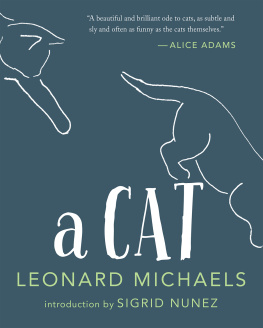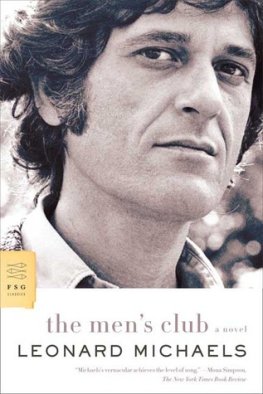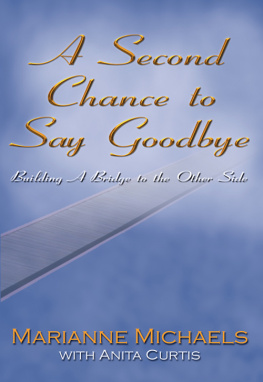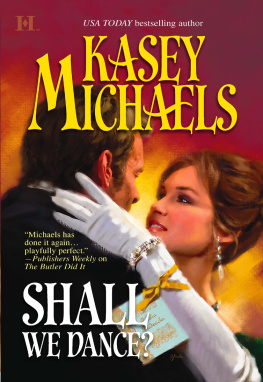Contents
Guide

My cat neatly settled herself on top of my copy of this book, indifferent to its many charms and keen observations. Typical.
STEPHEN SPARKS, POINT REYES BOOKS
To Becky
Copyright 1995 Leonard Michaels. First published by Riverhead Books
Tin House edition 2018
All rights reserved. No part of this book may be used or reproduced in any manner whatsoever without written permission from the publisher except in the case of brief quotations embodied in critical articles or reviews. For information, contact Tin House Books, 2617 NW Thurman St., Portland, OR 97210.
Published by Tin House Books, Portland, Oregon, and Brooklyn, New York
Distributed by W. W. Norton & Company
The Library of Congress has cataloged the printed edition as follows:
Names: Michaels, Leonard, 1933-2003, author.
Title: A cat / Leonard Michaels ; [illustrations by Frances Lerner].
Description: U.S. edition. | Portland, Oregon : Tin House Books, 2018.
Identifiers: LCCN 2018041651| ISBN 9781947793071 (hardcover) | ISBN 9781947793132 (ebook)
Subjects: LCSH: Cats--Miscellanea.
Classification: LCC SF445.5 .M52 2018 | DDC 636.8--dc23
LC record available at https://lccn.loc.gov/2018041651
Interior design by Diane Chonette
Interior illustrations by Frances Lerner
www.tinhouse.com

INTRODUCTION
Probably there are as many writers who are dog people as those who are cat people, but the idea of cats as the foremost literary familiar has long been entrenched and seems unlikely to be dislodged any time soon. (I have a friend who insists that if a person hates cats that person cant be a writer.) Cat books are known to outsell dog books, and the average well-read person can rattle off a list of cat-besotted authors, from Mark Twain to William S. Burroughs to Patricia Highsmith. Conjure up an image of, say, Hemingway or Colette, and you may find that a cat has sneaked into the frame. In 1995, when A Cat was first published, I didnt know the author well enough to know how he felt about my favorite animal. I do remember being surprised, though. The last thing I would have expected from Leonard Michaels was a cat book.
I had met him about twenty years before, when I accompanied a friend to the Berkeley campus of the University of California, where she had been invited to teach at a weeklong writers conference and Michaels, the conference organizer, was on the faculty. I was excited to meet him. I had read the brilliant, nervy, exquisitely written stories in his two collections, Going Places and I Would Have Saved Them If I Could , and I was a fan. He was forty-three, as handsome as his author photo, with luxurious dark hair, Mr. Rochesters great, dark eyes, and a moody-looking, at times sullen, expression. His voice was also dark, the voice of a tough guy (I could have said thug), a voice you would not have wanted to hear raised at you, especially since it was obvious that beneath a gentle and self-deprecating surface was a very angry man.
From his stories I knew that he had a natural dry wit and a wicked sense of humor, but that week brought out little of that side of him. I was shocked at how openly miserable he was. Though, like his first book, his recently published second one had been widely praised, including on the front page of the New York Times Book Review , it had also been subject to a cruel and blockheaded attack by an unfortunately highly regarded critic in the New York Review of Books . Michaels made no secret of how much that review had enraged him, or how depressing he found the life of a writer. But in fact, much of the conversation I heard that week at the faculty club was in the same vein. The cheapskate publishers, the egotistical editors, the philistine readers, the lazy or malicious critics. You publish a book, said one writer, and its like you become a fire hydrant, there to be pissed on by any dog that comes along. Cats, as I recall, were never mentioned.
Michaels was equally disgusted with academic life. ( Soul-crushing was how he described teaching.) But it seemed to me there was something deeper than his voiced discontents. This was the period just after the Vietnam War. I knew men who were suffering from PTSD . Michaels, who had never been to war, reminded me of those men. Later, after I read his novel Sylvia , an account of his traumatic relationship with his first wife, a mentally disturbed woman who killed herself when he tried to leave her, I thought that thisthough it had happened more than two decades earliermight have been part of the cause.
At the end of the week, when we said goodbye, we agreed to get together the next time he was in New York. But when the time came, in a fit of nervous shyness I made some last-minute excuse. Later, when I recalled that the plan had been to visit him in his mothers apartment, on the Lower East Side, where he had been raised, speaking only Yiddish until he was five, I would be filled with regret.
That would have been fascinating. That would have been an honor. All these years later, I still feel regret. And it wasnt until the millennium that I would see him again. By then hed retired from teaching and was living in Italy with his wife, Katharine Ogden Michaels. During a year I spent in Rome, I saw them on social occasions a few times. He was calmer and clearly happier than the man Id met in Berkeley, but he was not done with anger. Id been warned by mutual friends that certain topics could set him off. All things Jewish was one. At dinner one night we lit somehow on Sylvia Plaths use of the Holocaust as metaphor in her famous poem Daddy. Michaels, whose aunt and grandparents had been murdered by Nazis in Poland, said, through clenched teeth, How dare she .
In the long years between our first and last meetings we were only occasionally in touch, but at one pointa very low point in my life, when all I knew of publishing was rejectionI sent him a couple of stories, which he passed on to his friend Wendy Lesser, editor of the Threepenny Review , which led to my first publication in a literary journal. (Michaels was the unusual writer who enjoyed discovering and helping aspiring writers.) Meanwhile, he remained on the list of writers of whom I knew I must read everything. He was always writing, and there came more storiesincluding the series written toward the end of his life, known as the Nachman stories and surely among his bestas well as novels, essays, diaries, and, of all things, a cat book.
According to Joseph Brodsky (yet another literary ailurophile), The discarding of the superfluous is in itself the first cry of poetry. Nothing superfluous is a good way of describing both a cat and A Cat , which is written in the same terse and essentializing way that Michaels said he found himself impelled to write whenever he wrote about himself.
Speaking about Isaac Babel, George Saunders once noted two types of beauty crossing in [his] prose: the beauty of the world, and the beauty of the sentence. This could just as well have been said about Leonard Michaels, who, for all his pessimismand for all the ugly characters and nasty goings-on in much of his fictionsaw, even as a child looking at nature, that colors never clash and that the world is everywhere beautiful. That child grew up to be a man enthralled by and keenly sensitive to art. One day he would name Isaac Babel as the writer who influences me more than any other.
Line is as important in prose as in an engraving, stated Babel. In all Michaelss writing, the importance of line is supreme. It is something he fancies a cat could appreciate too. When your hand strokes its back, he writes, a cat feels it own beautiful lines. Elsewhere, observing a cat in motion, he sees its parts flow like words in a sentence. (A well-written one, understand.) Below the words, the play of a cats muscles is a grammatical exercise.















